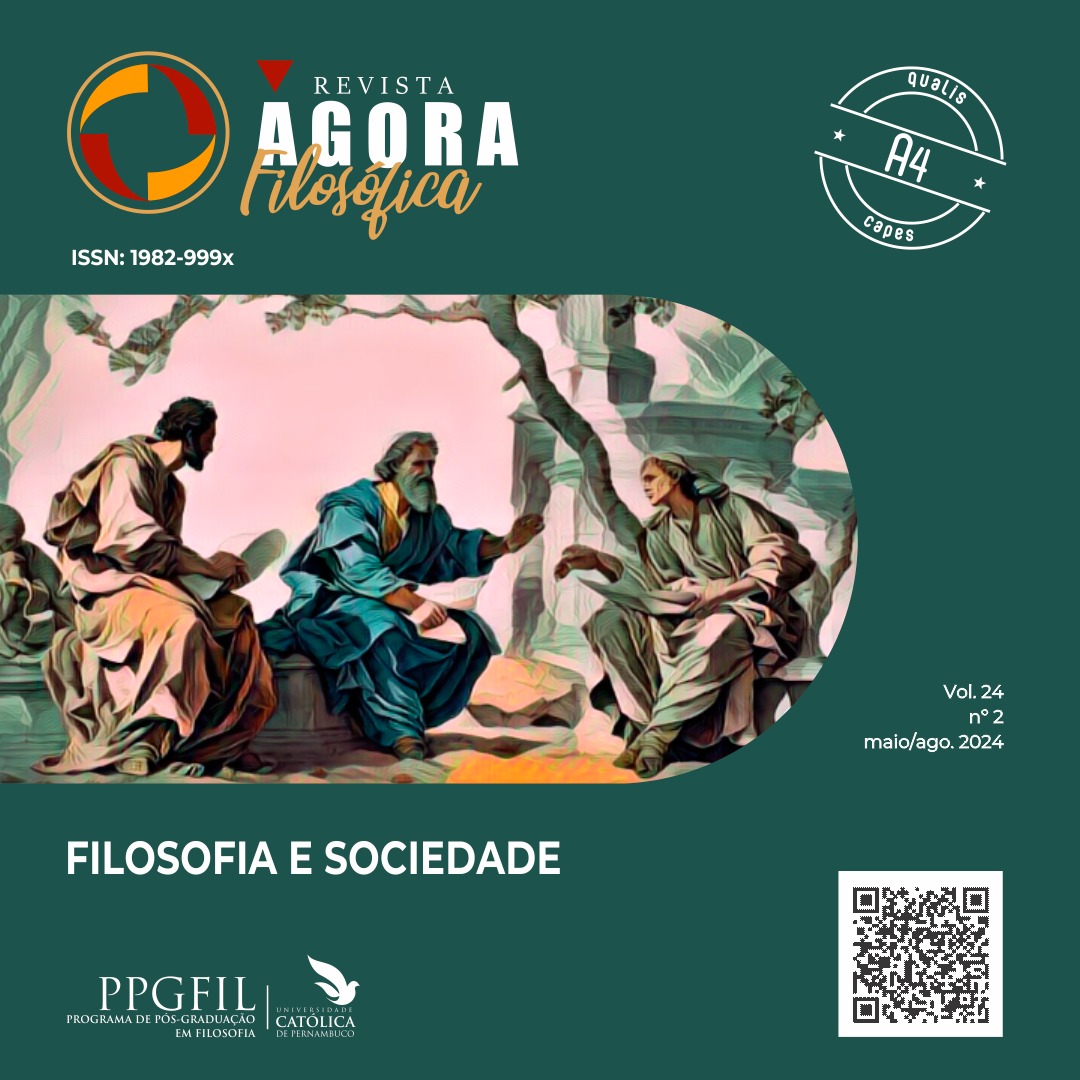The Teaching of Philosophy in Angolan primary and university education institutions: from utility to essentiality
DOI:
https://doi.org/10.25247/P1982-999X.2024.v24n2.p37-60Keywords:
Philosophy Education, Angola, utility, institutionAbstract
This article addresses the pressing issue of the essential importance of teaching Philosophy, often questioned for its utility, especially in the Angolan educational context. It emphasizes the urgent need to implement Philosophy courses to educate academically prepared professionals. Under the auspices of contemporary philosophers such as Imbamba, Valentim, Pondé, and others, this article argues that, despite utilitarian societies, Philosophy provides crucial skills such as critical and argumentative thinking, essential for shaping reflective citizens. It is imperative to analyze the relevance of teaching Philosophy in Angolan institutions, considering the challenges faced by teachers. Furthermore, the teaching of Philosophy is not an academic luxury but a crucial necessity for the intellectual and ethical development of all citizens. The importance of Philosophy as a discipline dedicated to promoting essential skills, such as analysis, criticism, and argumentation, crucial for democratic societies, should be highlighted. In the face of the devaluation of the Humanities, especially Philosophy, it is opportune to appeal to public administrators to humanize Angola by integrating humanistic courses into curricula, aiming to educate not only qualified professionals but also conscious and engaged citizens. Philosophy, ipso facto, is presented as a possible "salvation" for the new youth, providing a space for existential questioning amidst an educational system often marked by commercialism and a lack of academic merit.
Downloads
References
ALMEIDA, M. M. (Coord.). Programa de filosofia 10º e 11º Anos: Cursos Científico Humanísticos e Cursos Tecnológicos. Lisboa: Ministério da Educação – Departamento do Ensino Secundário, 2001.
ANDRÉ, J. M. Multiculturalidade, identidades e mestiçagem: o diálogo intercultural nas ideias, na política, nas artes e na religião. Coimbra: Palimage, 2012.
ARENDT, H. A vida do espírito, o pensar, o querer, o julgar. Rio de Janeiro: Relume-Dumará, 1991.
CARRILHO, M. O ensino da filosofia nas escolas públicas em Angola. Revista Portuguesa de Educação, 2009.
CHAUI, M. Convite à filosofia, São Paulo: Ática, 2000.
GOMES, F. A filosofia na educação angolana: uma análise crítica do ensino da filosofia nas escolas secundárias de Luanda. Dissertação de mestrado, Universidade Federal do Rio Grande do Sul, 2018.
IMBAMBA J. M. Uma nova Cultura para mulheres e homens novos: um projecto filosófico para Angola do 3.º milénio à luz da Filosofia de Battista Mondin. Luanda: Paulinas, 2003.
KANT, I. Critica della ragione pura, tradução: it. Ed. Laterza, 2005.
KRAUS, K. Detti e contraddetti. A cura di Roberto Galasso. Milano: Adelphi Edizioni, 1993.
LAMANNA E. P. Il problema della scienza nella storia del pensiero. Florença: Le Monnier, 2000.
MALUSA, Luciano. Uno sguardo sulle tendenze attuali riguardo alla didattica della filosofia. Bollettino della Società Filosofica Italiana, 2002.
MARIA J.; BENTO A.; DOMINGUES, J. A. (org.). Agostinho. De civitate Dei: dois amores, duas cidades. Ed. Docomenta, 2019
MINISTÉRIO DA EDUCAÇÃO DE ANGOLA. Plano nacional de formação de professores 2016-2025. Luanda: Ministério da Educação, 2016.
MOÇO, F.N. J. A doença como manifestação da finitude humana: uma breve reflexão filosófico-existencial. In: VALENTIM, I.; CÂNDIDO, M. R.;
FIGUEIREDO, A. (org.). As Pontes do Universo: reflexões sobre a experiência de ensinar e de curar. Porto Alegre: Fênix, 2023.
MUNAKUPPI, V. Teaching philosophy in African universities: a survey of the challenges and opportunities. African Journal of Higher Education, 2017.
ORTEGA P. Valores y educación. Barelona: Editorial Ariel, S.A., 1996.
PINA, A. O homem e a cidadania. Luanda: Mayamba, V., 2015.
PONDÉ, L. F. (2016). Filosofia para corajosos, São Paulo: Planeta, 2016.
PROJETO POLÍTICO-PEDAGÓGICO da licenciatura em filosofia. Luanda: Universidade Agostinho Neto, 2020.
RUSSELL, Bertrand. Os problemas da filosofia. 5. ed. Coimbra: Arménio Amado, Editor, 1980.
TELMONI, V. La filosofia nei Licei italiani arrozes itarianos. Ed. CLUEB, 1999.
VALETIM, Inacio. Ética e a memória da gratidão: curar com a palavra e libertar com o olhar. Huambo: Ed. Numa 1, 2022.
VALETIM, Inacio. O mal-estar das nossas instituições educativas. In: VALENTIM, I.; CÂNDIDO, M. R.; FIGUEIREDO, A. (org.). As pontes do universo- reflexões sobre a experiência de ensinar e de curar. Porto Alegre: Fundação Fênix, 2023.
VATTIMO, G. Filosofia. In: Enciclopedia garzanti di filosofia. Milão: Garzanti Editore, 1981.
VICENTE, J. N. Didáctica da filosofia – Apontamentos e textos de apoio às aulas. Faculdade de Letras. Coimbra: 2005.
Downloads
Published
Issue
Section
License
Copyright (c) 2024 Inácio Valentim, Feliciano Nanga Moço

This work is licensed under a Creative Commons Attribution 4.0 International License.
You are free to:
- Share — copy and redistribute the material in any medium or format for any purpose, even commercially.
- Adapt — remix, transform, and build upon the material for any purpose, even commercially.
- The licensor cannot revoke these freedoms as long as you follow the license terms.
Under the following terms:
- Attribution — You must give appropriate credit , provide a link to the license, and indicate if changes were made . You may do so in any reasonable manner, but not in any way that suggests the licensor endorses you or your use.
- No additional restrictions — You may not apply legal terms or technological measures that legally restrict others from doing anything the license permits.
Notices:
You do not have to comply with the license for elements of the material in the public domain or where your use is permitted by an applicable exception or limitation .
No warranties are given. The license may not give you all of the permissions necessary for your intended use. For example, other rights such as publicity, privacy, or moral rights may limit how you use the material.
















